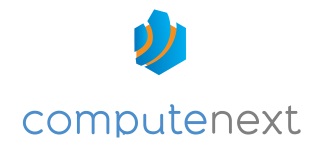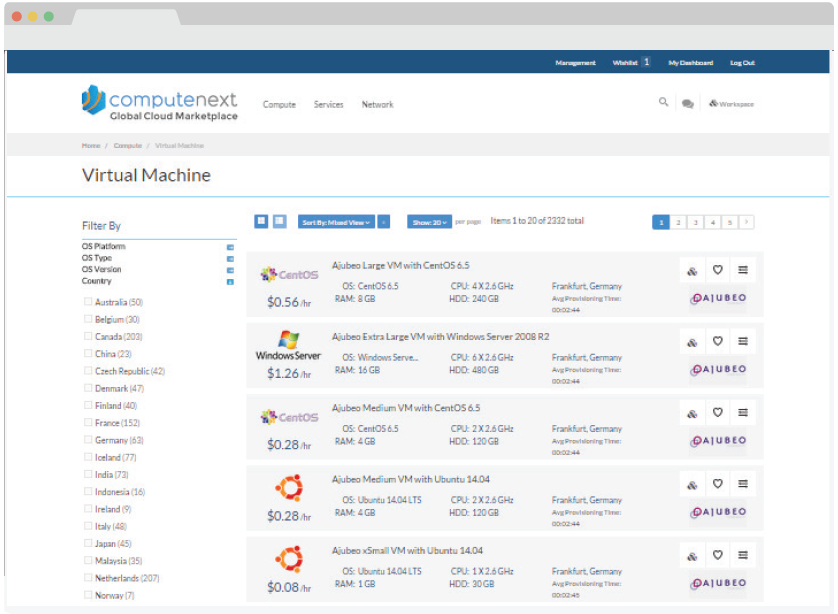The Shifting Notion of a Cloud Service Brokerage
Depending upon whom you ask, the notion of a Cloud Service Brokerage (CSB) has many overlapping but different meanings.
In some contexts a CSB is an internal IT role, responsible for managing various departments’ access to cloud resources.
In other contexts it’s a third party cloud service itself, offering some combination of aggregation, integration, customization, intermediation, and management of cloud services to various consumers of those services.
 Or perhaps a CSB is the underlying technology more than the service itself – an enablement platform that supports the various capabilities we might expect from a brokerage.
Or perhaps a CSB is the underlying technology more than the service itself – an enablement platform that supports the various capabilities we might expect from a brokerage.
Both Gartner and Forrester wrote early reports on CSBs a few years ago, sponsored by Intel and Cordys, respectively (Cordys is now a part of OpenText). As these reports were published well ahead of any market-driven definition of CSBs, the reports served more to communicate the sponsors’ priorities than to clarify the market, leading to ongoing confusion about the nature of CSBs.
In the intervening time, customer-driven market growth has clarified the notion of the CSB. The internal IT brokerage capability is gaining traction. The Integration-as-a-Service market is taking off as well, essentially moving away from the CSB terminology to become its own market segment, even though the offerings in the space serve to broker cloud services in one way or another.
The aspect of CSBs that have gained the most traction so far, however, are cloud marketplaces – both the marketplaces themselves delivered as a service, as well as the underlying technology that enables companies to build such marketplaces.
To add further clarity to this market, the “marketplace-as-a-service” arena divides into two areas: SaaS and IaaS marketplaces. The same underlying technology for each type of marketplace may support both versions of this capability.
ComputeNext’s Positioning in the CSB Market
Bellevue, Washington-based ComputeNext offers both an IaaS marketplace-as-a-service as well as the enabling technology platform that independent software vendors (ISVs), system integrators (SIs), value-added resellers (VARs), and data center/colocation providers can use to build their own IaaS or SaaS-based cloud marketplaces.
The Global Cloud Marketplace is ComputeNext’s IaaS marketplace-as-a-service offering, what they liken to an “Expedia for cloud services.” It is essentially an ecommerce platform that enables the convenient procurement and utilization of cloud infrastructure services, as well as a more limited range of software services.
Numerous cloud providers have already populated the marketplace with thousands of individual virtual machine (VM) and storage services, enabling cloud customers to search by price, operating system platform, type, and version, as well as the country where the physical cloud resources reside.
The user interface (shown in the figure below) is straightforward and easy to use. In addition, ComputeNext offers API access and white label branded cloud marketplaces for ISVs and channel partners to either offer their own cloud marketplace, or to deliver value-added offerings on top of the ComputeNext marketplace technology.

The ComputeNext Global Cloud Marketplace (source: ComputeNext)
For ISVs in particular, the ComputeNext Global Marketplace offers a range of value propositions. It simplifies the provisioning of diverse cloud resources for supporting globally available SaaS offerings, allowing for both geographic distribution (often an important legal compliance issue) as well as the ability to deploy custom images across multiple cloud providers.
ComputeNext also facilitates the selection and provisioning of specialized cloud environments, for example for high performance computing applications or low-latency environments that are geographically close to the cloud consumers. ComputeNext’s API abstraction and single account also simplify both technical and business interactions with multiple cloud providers, respectively.
Facilitating DevOps
DevOps is an organizational principle for supporting the continuous delivery and integration of software that in large part depends upon the automation of both the operational environment as well as the software lifecycle. Typically, such automation involves individual IaaS environments, but with ComputeNext, it’s possible to automate the selection of IaaS resources across multiple providers and then configure and coordinate them once they are provisioned.
ComputeNext is able to accomplish this feat because it supports most cloud management platforms and modern deployment frameworks, including Chef, Docker, and Apache jclouds. It’s possible, for example, to create a Chef cookbook to automate the provisioning and configuration of environments and packages like Magento, Nginx, MySQL, and others, across separate cloud providers if desired.
The Intellyx Take
The fact that ComputeNext offers a Global Cloud Marketplace for public cloud services as well as a customizable platform for white-label marketplaces and services gives the company a diverse and robust business model.
Revenues from marketplaces depend upon taking a small cut of each transaction, and thus leverage the network effect (large numbers of buyers and sellers) in order to reach profitability. ComputeNext has turned this corner. Last year alone ComputeNext grew revenues by five times, and they expect to see continued growth as cloud workloads mature and customers require manageable multi-cloud deployments.
White label offerings typically involve a marketplace set-up fee and then a share of the partner’s revenue, thus aligning the interests of ComputeNext and its partners. Additionally, the sale of platform and marketplace enablement software leads to traditional licensing revenues as well as ongoing maintenance fees.
By combining all of these business models, ComputeNext has essentially covered their bets in an emerging market. If one line of business stalls, others will be able to take its place. That being said, all indications are that ComputeNext’s diverse business model is firing on all cylinders.
ComputeNext is an Intellyx client. At the time of writing, no other organizations mentioned in this article are Intellyx clients. Intellyx retains full editorial control over the content of this article.



